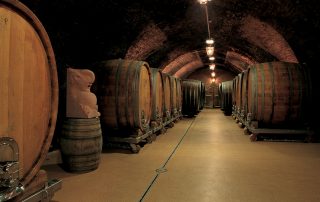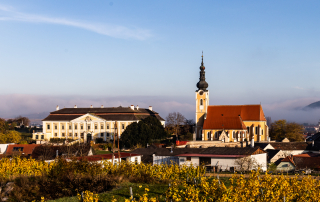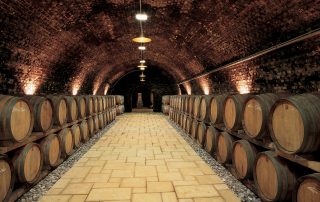Schloss Gobelsburg, situated in the Kamptal wine region of Lower Austria, can be found approximately 50 miles to the northwest of Vienna. This historic location serves a dual purpose as both a winery and a castle. It boasts a rich heritage of wine production dating all the way back to 1171, and its impressive architectural structure is even recognized as a protected historical building.

Notably, Gobelsburg is renowned for its traditional method of crafting Riesling wines, a reputation that has earned it a distinguished place among the world’s premier wine estates, according to Karen MacNeil.
The site’s historical significance extends beyond winemaking, with archaeological findings tracing back some 4,000 years. The Kunringer family erected a fortress at this location in the 1000s, and the original structure, attributed to Azzo von Gobatsburg in 1074, was mentioned as early as 1178. Over the years, the castle and its grounds changed hands among various noble families until they were eventually acquired by the Cistercian monks of Zwettl Abbey in 1740, a possession that persists to this day. As a result, Schloss Gobelsburg holds the distinction of being a protected historical landmark.

The castle’s appearance underwent a transformation in 1725 when Josef Munggenast renovated the Renaissance structure in a baroque style. Lettie Teague of Food & Wine magazine, during a 2017 tour of Austrian vineyards, described it as the “grandest winery.” Notably, the castle’s chapel features artwork by Kremser Schmidt. In 1740, Zwettl Abbey assumed ownership of Gobelsburg from Achaz Ehrenreich von Hohenfeld.
The estate’s winemaking heritage reaches back to the 1100s, with a documented production history dating to 1171. This makes it the oldest winery along the Danube River. Pinot Noir grapes were introduced to the Langenlois region by the monks of Stift Zwettl, who brought them from Burgundy.

In the mid-1700s, Gobelsburg Messwein gained considerable recognition and respect. However, the aftermath of World War II saw the Soviet Union occupying the Kamptal area, leading to the confiscation of the finest vintages from various wineries, including Schloss Gobelsburg.
Father Bertrand Baumann managed the estate from 1958 to 1980 before fully retiring in 1995. In 1980, management passed into the hands of Karl Burger and later, in 1990, to Andreas Schmid. Finally, in 1996, Eva and Michael Moosbrugger assumed responsibility for both the castle and the winery.
Address: Schloss Str. 16, 3550, Austria
Phone +43 2734 2422